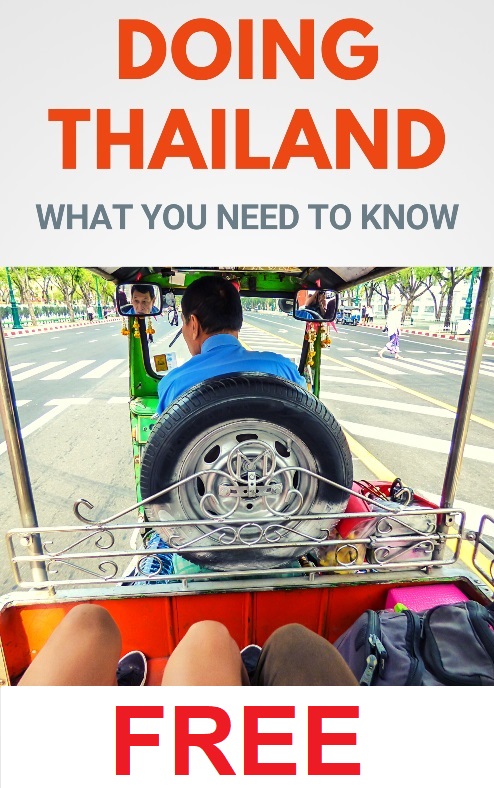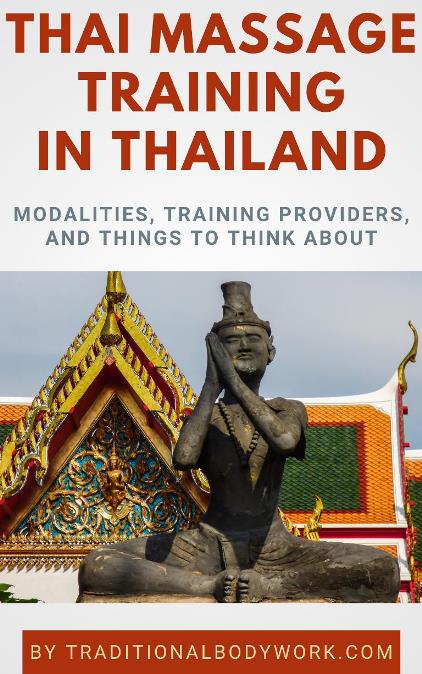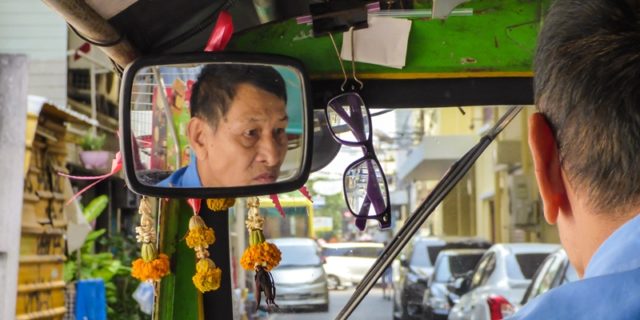
One of the few ways to live in Thailand legally and make money at the same time is teaching English in Thai public or private schools or English language institutes.
Of course, there are other ways to stay in the country longer, like leaving the country every two months or so to obtain the necessary stamps in your passport at a Thai consulate in a neighboring country (the so-called visa-run).
But the latter option doesn’t only cost you money for visas, overnight stays and transport, it’s also rather annoying and time consuming, and after a few times going forth and back you might get ugly questions from the Thai border police and customs and most probably end up by paying bribes to reenter Thailand.
Nevertheless, there are some conditions to be fulfilled to teach English in Thailand and, psychologically for a Westerner, it’s not as easy as it sounds.
Requirements & Paperwork

First of all, to obtain a working permit and non-immigrant Visa B you will need a college degree (Bachelor or Master) of which it doesn’t matter in what studies. If you are a native English speaker (like from the USA, Canada, Australia, UK, and so on) you might get away with just a TESOL or TEFL English teaching diploma and without a college degree, but that becomes increasingly rare nowadays. Compared to ten years ago Thai regulation has changed quite a lot becoming tougher on prerequisites.
If you’re not a native English speaker, requirements increase and you’ll definitely need a college degree and a TEFL/TESOL teaching English diploma (TEFL/TESOL can be obtained in about two months if you study hard, online or in-class), and/or proven teaching experience. In this case, you will also need to officially translate your college diplomas or certificates (assuming they are not in English).
Mind also that you will need a clean criminal record sheet from your home country, at some point you’ll need to pass a (normally simple and straightforward) medical check, you will need to leave the country at least one time to obtain your Visa B at a Thai Consulate abroad (Malaysia, Cambodia, or Laos are the most obvious routes), and most likely pay a bribe to the border police when reentering Thailand with a work permit.
Acquiring the Job
You might be able to obtain a teaching job in Thailand from out your home country and do the necessary paperwork there, but it’s rare, because most of the English teaching jobs are obtained locally on the spot. In Thailand, you basically almost always need to start “NOW.” Looking ahead timely for the teachers they’ll need the next term is not the way the “Thai thinking system” works.
Having said that, let’s take a look at the kind of English teaching jobs you can obtain. The market for teaching English in Thailand is huge (like in many other Asian countries) especially with the ongoing integration of Thailand in the ASEAN (Association of Southeast Asian Nations).
You’ll find teaching positions virtually everywhere in Thailand, like in Chiang Mai, Isan, on the islands, central Thailand, in the south, but without doubt mostly in the greater Bangkok area. Many vacancies are to be found at public schools (primary and high school), Private Schools, and International Schools, Colleges or Universities, or private institutes.
Most teaching jobs are full-time (about 30 – 40 hours presence, of which about max 20 contact-hours), some can be part-time at International Schools or private institutes. Mind that it will be quite a bit harder to get a working permit and visa with a part-time job.
Psychological Preparation
Prepare yourself mentally to be a teacher for Thai people, because if you originate from a Western country, it will be quite different from that what you are used to at home. The concept of “losing face” is very, very important in Thailand, which means that you’ll need to pass every student (even if they really flunked), cannot ask questions in the class room the students might not be able to answer, you as a teacher cannot lose temper (that’s not done and you’ll lose all credit), you need to be well groomed (and not smell), you need to be able to always “go with the flow” (because schools are often very disorganized and changes of schedules and curricula happen suddenly and with no warning), and you’ll need to be “fun,” that is… a clown.

Remember, and this also is a very important concept in Asia, that when a student fails it is ALWAYS the teacher’s fault, because it means that the teacher didn’t help or do enough for the student to pass or obtain the required knowledge (and that’s why you’ll need to grade-pass all students anyhow).
You’ll be surprised at how much emphasis the Thai put on learning English, and how few Thai students really learn a bit of reasonable English (or care to learn it), whatever you do or try, for that matter. Studying English in Thailand is mostly “for appearances,” and you, the English teacher, is there only “for appearances” likewise! Get used to that! Really! It sounds perhaps strange, but if you want to succeed teaching English in Thailand, please do not take your job too seriously, else you’ll end up in the loony bin very quickly.
Another thing I’d like to add, to make you better grasp the Thai mind-set, are my personal experiences being an English teacher and also a Thai Masseur and instructor. You see, the director of the first school I taught English at urged me NOT to say that I practice Thai Massage. In Thailand, it’s generally not seen as a job or activity “of standing.” It’s not fancy enough, and seen as a job for people in Thailand who can’t do something “higher or better!” Yep.
Now of course, surely there is (growing) appreciation of traditional medicine at the Thai governmental level and certainly out of commercial value (tourist and student influx, herbal products sales, and so on), but there’s still a long way to go in Thailand before “Thai masseur” will be seen as a fully respectable and valuable job occupation.
Well … there’s a lot more to be said when it comes to teaching English in Thailand, but I suppose by now you most probably get the big picture.















